Preamble
A commission in the British Indian army was highly coveted by our ancestors. Military officers ranked high in the pecking order, since the Commander-in-Chief was next only to the Viceroy. Consequently, military officers were placed higher than the civil servants. And for a long time, the army was officered exclusively by the British. Until as late as 1919, the highest rank admissible to the Indian soldiers was Subedar Major. After a lot of agitation and protests, a few Indians were granted the KCIO ranks. The training for these posts was conducted in England, and their total number was very small. Then, the IMA was established in Dehradun in 1932, but the officers commissioned from there were granted a lower pay scale and treated as ‘Indian Commissioned’ officers. When the war broke out in 1939, Indians were offered ‘Emergency’ commissions.
The overall size of the army increased very rapidly, and after the Japanese jumped into the fray on 7 Dec 1941, the growth in numbers was truly enormous. And what the Japanese achieved was entirely unexpected. They conquered several countries including The Dutch East Indies (now called Indonesia), the Philippines, Malaya and Burma (Myanmar). The allied forces suffered a humiliating defeat, culminating in an unconditional surrender on 15 Feb 1942. The total number of prisoners taken by the Japanese was over 1,20,000. Many of the Indians who surrendered switched loyalty and joined the ‘Indian National Army’ under the leadership of Subhash Chandra Bose. With the help of the Burmese and the INA, the Japanese conquered the whole of Burma and they were soon knocking at the Indian border.
Our father, whom we addressed as ‘Pitaji,’ volunteered to join the army at this critical juncture. He was teaching in a school in Peshawar Cantt (now in Pakistan) and was considered to be one of the best in his trade. Mr. Saran Singh, IAS, who was one of his students, has described him as a charismatic instructor. The transition from the school to the military was neither easy nor smooth. He had to cross several obstacles. He even hid facts from our mother. Be that as it may, Pitaji stuck to his resolve, and was away from us for the best part of the next four years.
When the war ended, peace broke out! The size of the British Indian army had grown to 26, 00,000 and they knew very well that the country could neither maintain such a large army, nor afford to grant pension to such a large number of veterans. Ironic as it may sound; the men who had risked their lives were ‘de-mobilized’ in 1946. To help their resettlement, the British established Army schools of education in which soldiers were given some basic education and imparted some marketable skills. This turned out to be a blessing in disguise. Pitaji’s qualifications and teaching experience made him fit to be an instructor in one such school in Maymyo (Burma). Army Education Corps was re-raised and he soon made a place for himself in this new outfit. The reputation which he acquired led to his posting to the Indian Military Academy, Dehradun where he served for seven long years: first in 1949-53 and later in 1959-62.
In the process, he had also earned the right to live in some of the best bungalows which the British had built for their officers. We as children lived in 24, The Mall, Delhi Cantt; 163, The Mall, Meerut Cantt and 8, Ponnappa Road, Allahabad. And, after retirement in 1966, he settled down on a 27-acre farm, which he had bought during the war. He took a big risk, but had no cause for regret, at the end of his life!
Pitaji maintained a diary all through his life, and in the evening of his life, revised his diaries in three volumes. His memoirs are recorded in Punjabi. My younger brother, Brig Surinder Singh has abridged and re-told the story in English; with the help of his grandson, Jasraj.
Now, over to Surinder and Jasraj.
*
A page from Pitaji’s Diary
Pitaji’s War Diaries
(Pitaji’s story re-told by Brig Surinder and his grandson, Jasraj, in English)
During wars, induction procedures in the Army are adopted on a need-based approach. In Sep 1942, Pitaji was called upon to report to the Censor Station in Karachi. He was to be on probation as a civilian for a period of one month when he was assigned the task of censoring the mail written by our troops, so as to ensure that secret information on sensitive matters was not communicated. The Censor Station was commanded by a British officer named, Col Rositor. He was assisted by some Indian officers.
Pitaji was posted to a Section, which was headed by Captain J.O.N. Shukla, assisted by Lt. Ghulam Faridudin. Soon, Capt Shukla proceeded on leave and Lt Faridudin was officiating in charge of the section. This Muslim officer frequently found fault with Pitaji’s work and, in general, harassed him. This, together with separation from the family, depressed him no end. Every day he would go to Gurdwara Ratan Talao which was on his way home. After a hard day of toil and irritation, he found solace there.
At the end of one month, a report was to be initiated by Lt. Faridudin and that report would decide whether he would be retained or returned to the civilian world. Pitaji came to know that this Muslim officer was in the habit of spoiling the reports of Hindus and Sikhs so that Muslims could be approved for commissioning. This prospect was extremely scary because it would be highly embarrassing for Pitaji who had disobeyed the wise counsel of so many elders, before going to Karachi. It would be difficult for him to face them, because they would mock him.
Nevertheless, he performed his duties with utmost dedication.
It was his good fortune that Capt. Shukla was recalled from leave due to excessive workload and took charge of the section. He was aware of the conduct of Lt Faridudin and asked Pitaji if he had any problems in dealing with him. Pitaji thought for a while and decided that it was best to say nothing. As it turned out, he had earned a good report and was called by the British Commanding Officer, Col Rositor, who said,
“Which section have you worked in? How did you like the job?Well, I am recommending you for a Commission in the Army, and you will hear from Army HQ in a couple of weeks”
Pitaji’s joy knew no bounds: he went straight to the Gurdwara and offered his prayers of thanksgiving.
He then wrote a letter to Jhaiji, asking her to come from Peshawar to Karachi along with the children, bringing some essential luggage with her, while the rest was to be sent to Farooka. She was assisted in this by Uncle Pal who saw her off at the railway station. It was not a direct train and required a change in Lahore. With her three children, Manjit (8 yrs.), Manmohan (5 yrs.) and Surjit (1 yrs.), she managed the train changes all by herself. When Pitaji received them at Karachi railway station he was filled with emotion on the thought of how his helpless wife would bring up these three lovely children when he would go to the operational area.
Before he got commissioned as an officer, he was to be medically examined in the local Military Hospital which was commanded by a British Officer. Major Ashraf, a doctor, was trying to examine him. Time was at a premium those days. The CO told Major Ashraf, “What are you trying to see, all Sikhs are fit”. Pitaji had cleared this last hurdle. He was commissioned on 1st Dec 1942.
For the next two months, he was waiting for his posting orders. In this time, he could look after his family in Karachi itself, not knowing his future. In Feb 1943, he got his first posting order which was to Calcutta. Calcutta had been under heavy Japanese aerial bombing and the great Bengal famine was at its peak.
Pitaji broke the news to Jhaiji that he stood posted to the same place as his friend Capt. Kharag Singh. She knew he was in Calcutta and started crying. Pitaji tried to hoodwink her saying that he was in Lucknow and told others also to keep her in the dark.
He boarded the train to Calcutta, first time after becoming an officer and was pleased to travel by first class — a huge status symbol in those days. When the train reached Lucknow, he posted a letter from the railway Station, so as to assure his family that he was indeed posted to Lucknow, and not East Bengal. He was hoping that his subsequent letters would be through a ‘Field Post Office’ which would not disclose the location.
Burma Campaign.
It will be useful to be familiar with the broad timeline of the Burma Campaign before we see how Pitaji got involved in it. The paragraph below has been extracted from Wikipedia:
(The campaign can be divided it into four phases: the Japanese invasion, which led to the expulsion of British, Indian and Chinese forces in 1942; failed attempts by the Allies to mount offensives into Burma, from late 1942 to early 1944; the 1944 Japanese invasion of India, which ultimately failed following the battles of Imphal and Kohima; and finally the successful Allied offensive which reoccupied Burma from late-1944 to mid-1945.)
Pitaji arrived in Calcutta in Feb 1943 and reported for duty at the Command HQ. He was informed that five new Intelligence units were being raised, and he would be posted to one of them. In the meanwhile, he, along with some other new inductees, were merely required to report every morning and thereafter they were on their own. So they went sightseeing every day, thoroughly enjoying themselves.
In end Feb 1943, when the allied forces were trying to recapture Burma, he received his transfer orders to Chandpur, which is near Comilla (now in Bangladesh). The train from Calcutta took them only till Goalandoghat which is on the banks of the Brahmaputra River. The river is unique in its beauty. At places it is as broad as the sea; in other places it changes width ominously.
From Goalandoghat, the journey was by steamer, in which the upper deck was reserved for officers. Food on board was better than any officers’ mess. On reaching Chandpur, they were given a warm welcome and lodged in the first class waiting room. A temporary office was rigged up and the Censor Station started functioning from there itself. In this, they were briefed about their duties which were on the other side of the river; The river had to be crossed by a ramshackle boat.
Shortly, the office was shifted to the other side of the river. 25 to 30 civilian staff were posted in. This station was not served by any Field Post Office and, hence, civilian post offices carried private mail. The letters revealed that they had been posted from Chandpur…..just as Jhaiji had suspected. Pitaji had failed to hoodwink his family members!
Workload was heavy, and the working hours were long. Even Sunday was not an off day. Two trains arrived at Chandpur at midnight and the Dak had to be collected by an officer, in rotation. This meant that every third night this duty was to be performed by Pitaji. It involved crossing the river by a ramshackle boat, often in turbulent waters which was quite a hazardous task. No compensatory leave was given for this arduous assignment.
But Pitaji was used to tough life and took it in his stride.
Amidst all this, a very unfortunate event occurred. Pitaji was at the railway station, when a heavy downpour befell. He got into one of the bogies of a stationary train and waited till the rain receded. When he was about to get out of the bogie, his foot slipped and he fell down. The injury was excruciatingly painful. He was taken to the nearest MI Room and from there to an intermediate hospital. In about 14 days the bone joined but the leg was two inches shorter than the other one. Since the pain persisted, he was sent for expert treatment to a Military Hospital, in Dehra Dun.
He reached Dehra Dun in Jun 43, and asked his family to come there, since the treatment was likely to be a lengthy process. The word spread in Farooka that he had suffered a bullet injury. So Jhaiji and her three sons rushed to meet him. To help her, our uncles went over, in rotation.
The surgeon there, Col Collins examined him and said that the femur bone, which had fractured, had already set and if it was left like that, he would be limping for the rest of his life. He said “I will not send you from here with a bad leg” and proceeded to operate upon him. The operation was followed by heavy traction and the recovery took more than four months.
During those trying months, Jhaiji stayed in a small rented house in a village called Kaulagarh, near the Forest Research Institute (All through the war, the FRI had been converted to a military hospital). The entire staff there, barring the sweepers, was British.
Those four months were extremely difficult for our mother because she had to cook food for Pitaji and take it there, even when she had to brave through heavy downpour. Pitaji could not digest the hospital food. In addition, she had to look after her three sons. The elder two often complained of boredom, since they could not go to their school.
Mercifully, the leg healed and Pitaji was forever grateful to the doctor for having given him the invaluable gift of a strong and vigorous leg. He was granted some sick leave and discharged. He proceeded to Farooka after paying obeisance at the Golden Temple in Amritsar. When he arrived in his native village, he received the welcome which was accorded to war-wounded soldiers.
He was posted back to Chandpur, via Calcutta. In Calcutta, he saw hundreds of dead bodies lying on the roads. These were the result of the great Bengal famine which is well known to have resulted in the death of nearly three million deaths. The British were insensitive to this catastrophe, because of Bengali participation in the Indian National Army, led by Subhash Chandra Bose.
By Feb 1944, he had reported back to his unit and joined duty. The setup had changed. In addition to his normal duties he was also tasked to get rations from the ASC Depot in Comilla which was about 60 Km away from Chandpur. A Sikh JCO called Sub Manohar Singh was in- charge there. The rations received in the depot were often surplus and he gave them away to the poor and needy local people. His British boss came to know of this and admonished him for this, saying:
“Throw the surplus rations in the river rather than feeding these Bengali dogs”. Such was the hatred in the mind of that British Officer.
In spite of being admonished, Subedar Manohar Singh kept distributing the surplus rations to the poor and starving Bengalis.
An excerpt from the diary. The officer said, “Throw it in the river, rather than feeding these dogs!
As time passed by, the intensity of war increased. The Japanese had thwarted all attempts by the Allies to regain control in the region and the British were forced to pull back towards Imphal and Kohima.
Near Chandpur, there was a place called FENI, about 20 Km away. There was a heavy concentration of Allied troops and an Ammunition Depot was located there. FENI was subjected to heavy bombardment by the Japanese and a warning was given in Chandpur also. People used to get into their trenches whenever the bombardment occurred.
Aerial bombardment
Usually Pitaji shared a trench with one Lt. Nader, who used to often give long sermons to his colleagues on courage and faith. One night, the bombardment was so heavy that they had to plug their ears with fingers. Nadar was extremely terrified, and held on to Pitaji like a child. He sobbed, “Mr. Singh what will happen? We might not survive…. Who will look after my children if I die?”
Pitaji told him to chant ‘Waheguru, Waheguru…’ He did that. Thereafter, he uttered that hallowed word, whenever fear overpowered him.
In Chandpur, many people had never seen a Sikh. Whenever he passed by, the locals looked upon him with curiosity and wished him “Salam ul lekaam” mistaking him to be a Muslim. Even after he clarified that he was a Sikh, and not a Muslim, they maintained their cordiality
Japanese made further inroads into Indian Territory and evacuation plans for all troops in Assam and East Bengal were under implementation. Chandpur became a trans-shipment Centre where they would board the steamer to Goalandoghat and from there by train to Sealdah.
All these events were highly depressing. An added cause was that Pitaji had bought some land near Farooka on instalments, and he was worried that in case he became a war casualty, his family would be under heavy debt.
Leave of all Army personnel had been suspended all through 1944, and he had been away from home for over ten months. During November, he planned to celebrate Guru Nanak’s birthday, despite being the only Sikh there. A Hindu gentleman from Punjab, who had a Bengali wife, had permanently settled down in Chandpur. He had a copy of the Guru Granth Sahib. Along with some other invitees, the gathering grew up to sixty-odd people that included all the translators and staff of the Censor Station. This festivity brought much joy to Pitaji.
All through the war, Pitaji kept a picture of his family by his bedside. This group photograph was taken in Dec 1942, soon after his commission.
After a long spell of duty, he got war leave in Apr 45 because the war had nearly ended, by then. The Indian Army had successfully repulsed the Japanese assault in Imphal and Kohima, even though they suffered very heavy casualties. The Japanese began to retreat. On his return journey from Punjab, Pitaji met an officer who told him that qualified and trained teachers might be absorbed in the Army Education Corps (AEC), which was likely to be re-raised. He gave an application to join the AEC, and handed it over in HQ, Eastern Command Calcutta. He was asked to wait for further orders and proceed to Chandpur.
He was among the last to leave Chandpur, because he was ordered to wind up the Mess of which he was the Secretary. He performed the task with his trademark dedication.
At HQ Eastern Command, he was sent for an interview with the Chief Education Officer, Col Lunt who saw his qualifications and teaching experience of nearly ten years. He told Pitaji that they would absorb him in AEC without the conversion course at Pachmarhi. They were opening up new schools in Maymyo and Singapore and he would be posted to one of them. Since most of the Emergency Commissioned had been released from service, this came as a very welcome relief. His Army service had been extended!
However, the opening of the new Schools would take some time. In the meantime, they posted him to Jhansi in Record Office of ALFSEA, (Allied Land Forces South East Asia), where he reported as an interim measure. In Oct 1945, he landed up in Jhansi. There, he was joined by his family in which his fourth son, Surinder, born in Sep 1944, was a new addition. He was allotted a temporary accommodation in Sergeants Quarters. The posting order to AEC was eagerly awaited and it finally came, after repeated reminders, in Feb 1946. In wartime, all systems and procedures were rendered inefficient. The posting was to Army School of Education, Maymyo in Burma.
He dispatched his family back home to Farooka in Jan 1946 and commenced his long and arduous journey to Maymyo. That involved going by train to Madras and from there onwards by ship to Burma. In Madras, they had to wait for several days till the notice board displayed their names for journey to Rangoon. Those few days he spent sight-seeing in Madras. Finally, the ship took them to Rangoon. The journey from Rangoon to Maymyo was by train.
He boarded the train and was allotted a berth in the Second class by a British Sergeant who was the RTO. “Sgt, I am entitled to a berth in First Class,” he told the Sgt. The Sgt said, “Sir, go and occupy any berth you like.”
Pitaji walked the entire length of the train and found that the second class berth allotted to him was indeed the best in that train. The entire train had been damaged and the repair had been poor because of the war. The passengers opened up their own camp cots and lit hurricane lamps because the electric lights had failed. The toilets had no seats, just a big hole in which a man could fall, if he was not careful, especially at night.
The journey from Rangoon to Maymyo had two or three bridges over rivers but the bridges were broken and passengers had to carry their luggage on their shoulders and cross the river by foot. Coolies were not permitted because the British did not trust the locals, many of whom had switched loyalty to the Japanese.
Maymyo turned out to be a nice place, somewhat like Dehradun It was a semi hill station with a good climate.
Army School of Education (ASE), Maymyo
This was a newly raised Establishment. It was housed in barracks which had been severely ravaged by the war. A Japanese Prisoner of War camp was located near the School. Repair and maintenance work was being executed by the Military Engineering Service (MES) and working parties were drawn from the Japanese Prisoners of War. Pitaji got to know some prisoners, and discovered that most of them were highly educated and possessed many skills. One of them borrowed the above group photograph and drew a pencil sketch of the youngest child, Surjit, which is placed below:
A pencil sketch drawn by a Japanese prisoner of the youngest child in the group photograph
The School had two Wings, the British Wing and the Indian Wing. The purpose of the Establishment was to impart ‘Rehabilitation Training’ to the troops who had been at war and did not possess either the requisite knowledge or a skill to earn a living. They had been away from home for two to four. Several of them had spent the entire duration of the war, 1939 to 1945, serving in various theatres of war, including the Middle East, Persia, Iraq, and, of course, Burma-Bengal-Assam-Singapore theatre.
The Indian Wing was to cater to the needs of nearly 20 Lakh Indian troops who had fought the War. The British bosses knew very well that they could not afford to maintain such a large army, and indeed they could not be granted pension for the rest of their lives. It was a gigantic task.
The troops were divided into two categories; the skilled and the unskilled. Indian troops were mostly unskilled and had to be given basic education which was labelled as the three ‘Rs’; Reading, Riting and Rithmetic. The objective was that the troops should be able to append their signature, understand their entitlements and handle their personal finances. For this purpose, a very large number of instructors were required to be trained by officers, JCOs and NCOs. Three types of courses were devised:
-
Unit Education Instructors Course
-
Unit Education Instructors Training Course for Training the Trainers.
-
Handicrafts Training Instructors’ Course.
Pitaji, being a trained and experienced teacher, was earmarked for ‘training the trainers course’. For this purpose, he was made to undergo a 15 days course with fellow British Officers. In this course he got the highest grading of “A with distinction.” The pen picture was as follows:
“He was one of the most outstanding officers on this course. An experienced lecturer and teacher, he delivered an excellent talk on Rural Reconstruction. He led the group discourse on “The lingua franca of India” which was considered as the best discussion on this course.
The entire lecture and group discussion was attended by the Commanding Officer, Col Andrews. This grading enabled him to continue as an instructor in ASE.
In March 1946, he was promoted to the rank of Captain and allotted a separate room with a Burmese orderly. He was also presented a Japanese sword which remained in our house till the year of his death, 2004.
The Japanese sword. This souvenir adorned our house for several decades
Life after the War
After the war, he got some of the choicest postings, and was allotted the best bungalows, built during ‘Raj’ for their officers. He did a course in the Psychology Research Wing of the Military, and was posted to the Services Selection Boards, three times. This was in addition to the two long tenures in the Indian Military Academy(IMA), Dehradun. He was amply compensated for his separation from the family during the war. He enjoyed sitting on his study table, and during the last few years of his life, he wrote and revised his diaries for the posterity to get a glimpse. The title of his first diary is, “Ik Sangharsh Bhare Jeewan Diyan Abhul Yadaan” (The unforgettable memories of a life full of strife and struggle).
*
SOME PICTURES TAKEN OUT OF THE FAMILY ALBUM
A picture tells a thousand words. Here are some pictures taken out of the family album.
Pitaji in Khalsa College, Amritsar as a student
A school teacher in Peshawar Cantonment
Just before joining the army- 1941
Promoted to the rank of Captain. Notice the British badges of rank
Some of the houses we lived in. This is 24, The Mall. Delhi Cantt (1953-55)
163, The Mall Meerut Cantonment (1955-57)
No. 8, Ponnappa Road, Allahabad (1957-61)
We end this story by placing on record our gratitude to Surinder and his family. Here, you see them standing. Surinder was the first one amongst our kinsfolk to reach near the six-foot mark. Thereafter, they have been adding two inches with each generation. Jasraj is well above six feet and three inches.
This is Surinder, Jasraj and Pawan. The tallest in our family has been dwarfed by Jasraj!
*
Some glimpses of the Burma campaign (borrowed from Google)
This story would be incomplete without recounting some ghastly accounts of the gory battle. Here they are:
One : The Singapore Surrender 15 Feb 1942
Allied losses during the fighting for Singapore were heavy, with a total of nearly 85,000 personnel captured, About 5,000 were killed or wounded,[163] Japanese casualties during the fighting in Singapore amounted to 1,714 killed and 3,378 wounded. Throughout the entire 70-day campaign in Malaya and Singapore, total Allied casualties amounted to 8,708 killed or wounded and 130,000 captured, while Japanese losses during this period amounted to 9,824 battle casualties.
British Prime Minister Winston Churchill called the fall of Singapore to the Japanese “the worst disaster and largest capitulation in British history”.[166] Churchill’s personal physician Lord Moran wrote:
The fall of Singapore on February 15 stupefied the Prime Minister. How came 100,000 men (half of them of our own race) to raise their hands in front of inferior numbers of Japanese? Though his mind had been gradually prepared for its fall, the surrender of the fortress stunned him. He felt it was a disgrace. It left a scar on his mind. One evening, months later, when he was sitting in his bathroom enveloped in a towel, he stopped drying himself and gloomily surveyed the floor: ‘I cannot get over Singapore’, he said sadly.[167
Two: Japanese promises
The Japanese occupation of Burma was the period between 1942 and 1945 during World War II, when Burma was occupied by the Empire of Japan. The Japanese had assisted formation of the Burma Independence Army, and trained the Thirty Comrades, who were the founders of the modern Armed Forces (Tatmadaw). The Burmese hoped to gain support of the Japanese in expelling the British, so that Burma could become independent.[1][2]
In 1942 Japan invaded Burma and nominally declared the colony independent as the State of Burma on 1 August 1943. A puppet government led by Ba Maw was installed. However, many Burmese began to believe the Japanese had no intention of giving them real independence.[1][2]
Aung San, father of future opposition leader and State Counsellor Aung San Suu Kyi, and other nationalist leaders formed the Anti-Fascist Organisation in August 1944, which asked the United Kingdom to form a coalition with the other Allies against the Japanese. By April 1945, the Allies had driven out the Japanese. Subsequently, negotiations began between the Burmese and the British for independence. Under Japanese occupation, 170,000 to 250,000 civilians died.[1][2]
(The Japanese made a similar promise to the Indians; and some of us believed them!)
Three : Casualties in Imphal and Kohima
The Japanese casualties at Kohima and Imphal were the largest until that time.[28] They had suffered 54,879 casualties, including 13,376 dead (plus 920 casualties in the preliminary battles in Assam).[1] Most of these losses were the result of starvation, disease and exhaustion.
The Allies suffered 12,603 casualties.[1]
Four. Malaria was recognized as a big killer.
Use of mosquito net was made compulsory, and soldiers were forced to take an anti-malaria tablet before dinner
Five: Survival rate of Prisoners of War
This is from [World War II -- prisoners of war POWs Japan] Most of the Western POWs were taken in early 1942 and thus spent about 3½ years in Japanese custody. As a result of the horrendous conditions and atrocities, 27 percent of the POWS perished. This compared with 4 percent of Germans in Allied POW camps. (The small numbers of Japanese POWs in American care do not provide a valid comparison.) Fully one-third of the deaths occurred among the POWs put to building the Thailand-Burma railroad that the Japanese constructed to support their invasion of India. After 3½ years in Japanese camps, the surviving POWs were reduced to skeletons and in appalling condition. If the War had not ended when it did, the survival rate would have been much lower than the already horrendous rate. While the survival rate of Americans and Commonwealth troops were shocking. The survival rate of Chinese POWs was essentially zero. The Japanese killed almost all Chinese POWs.
British and Australian POWslian Prisoners of War. No one cared for the Geneva Convention

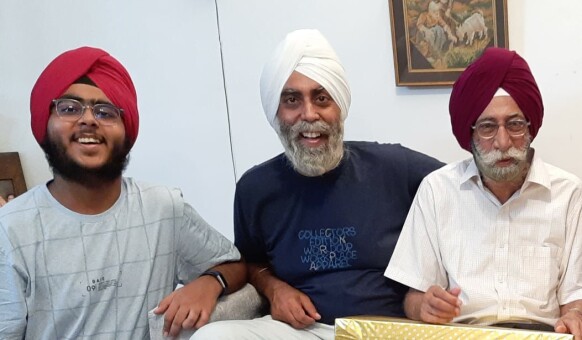
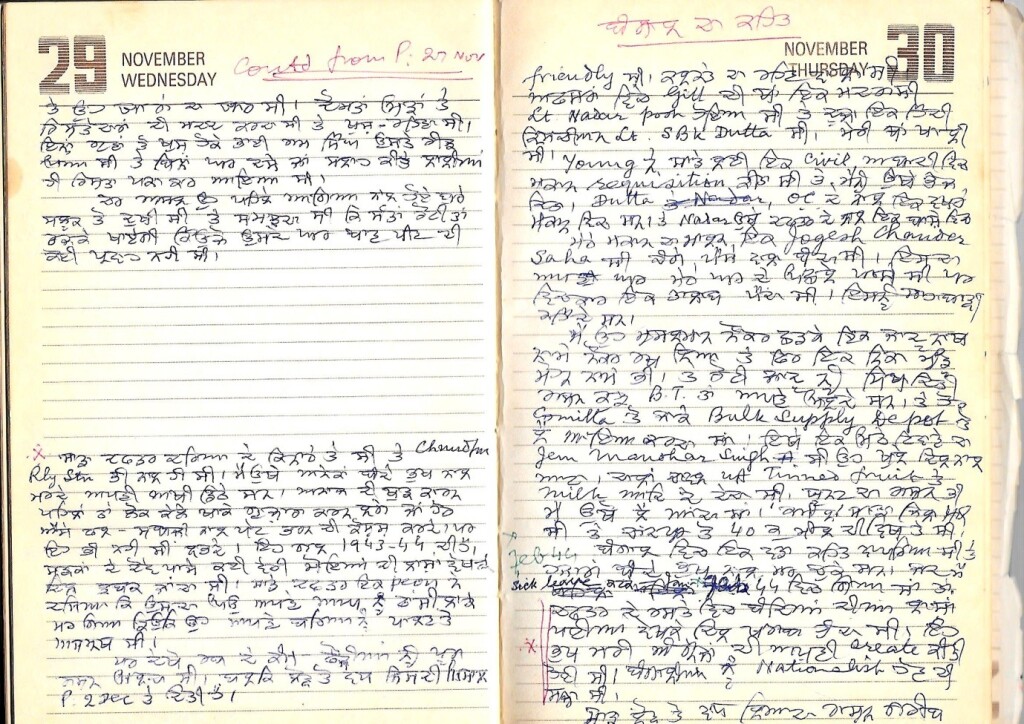
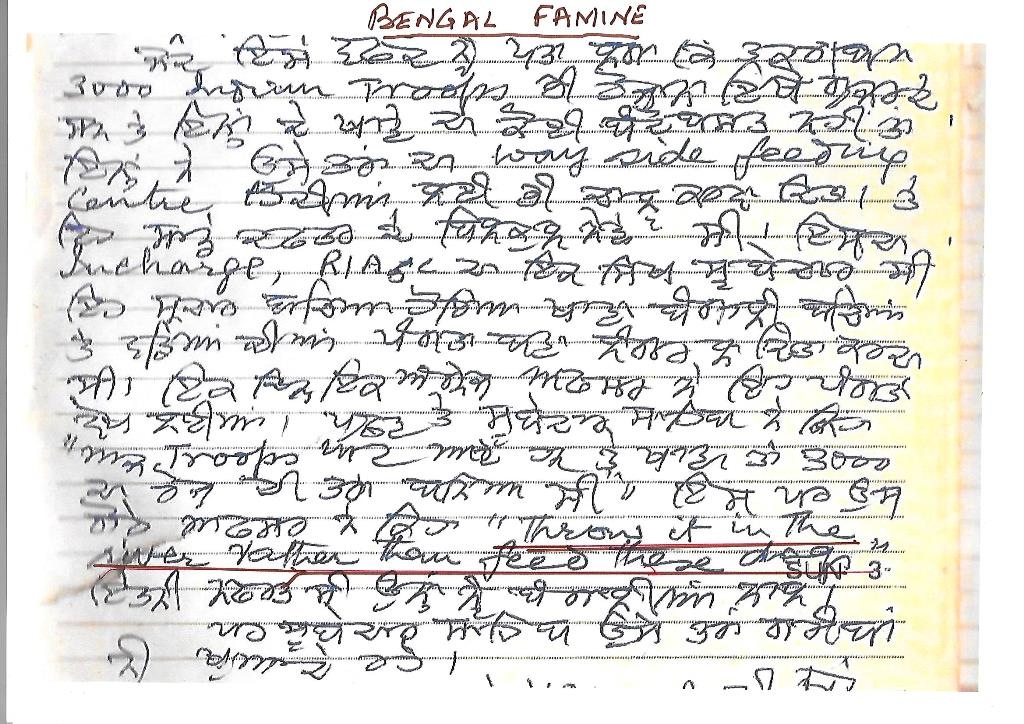
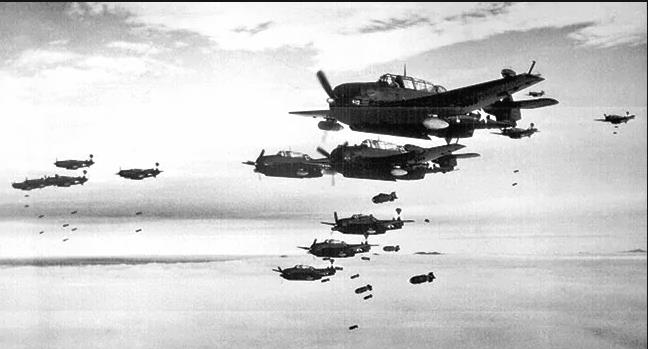

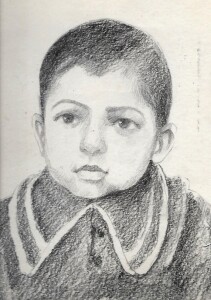
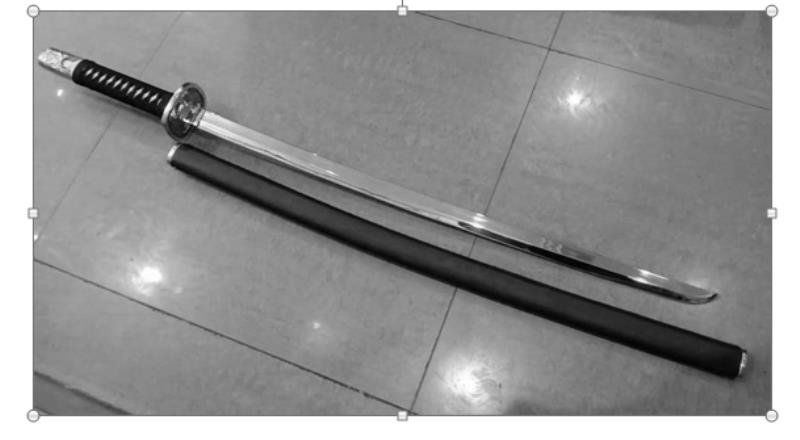
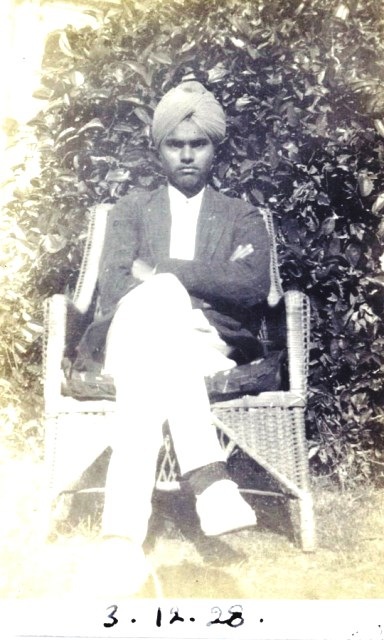
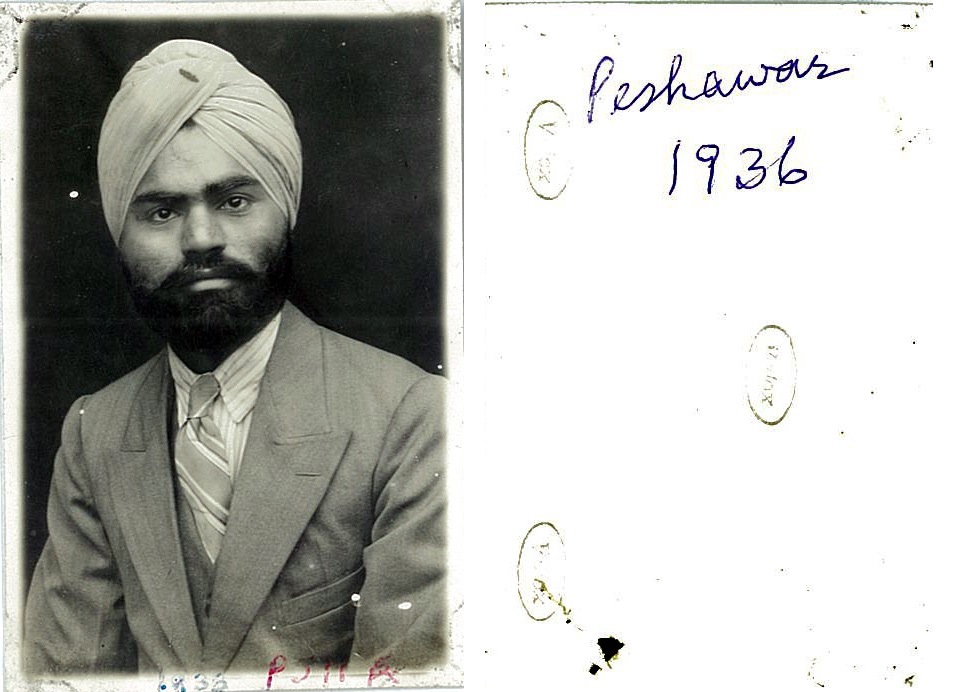


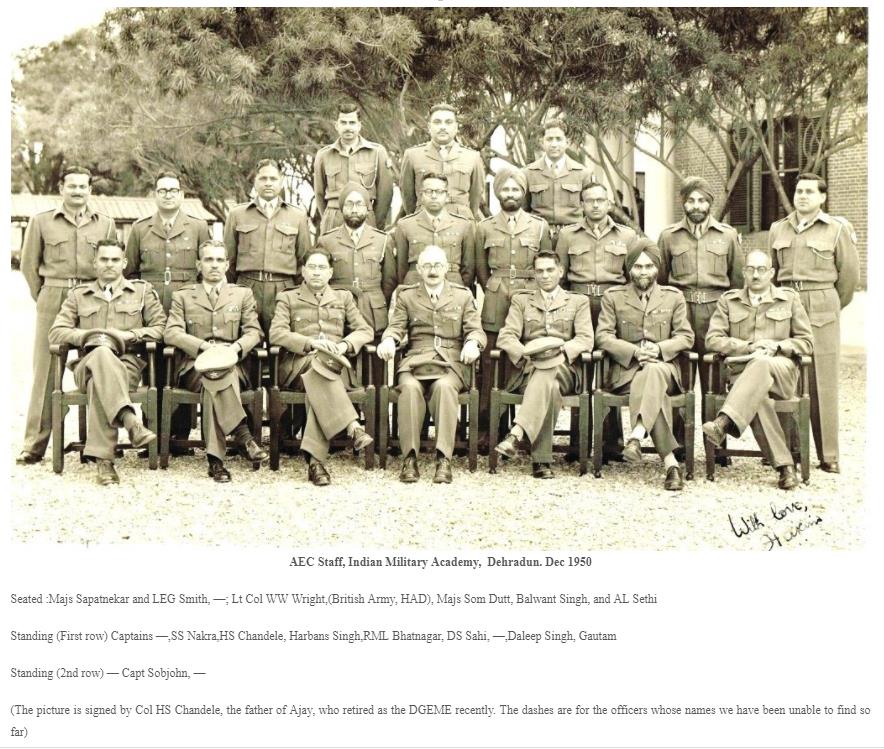
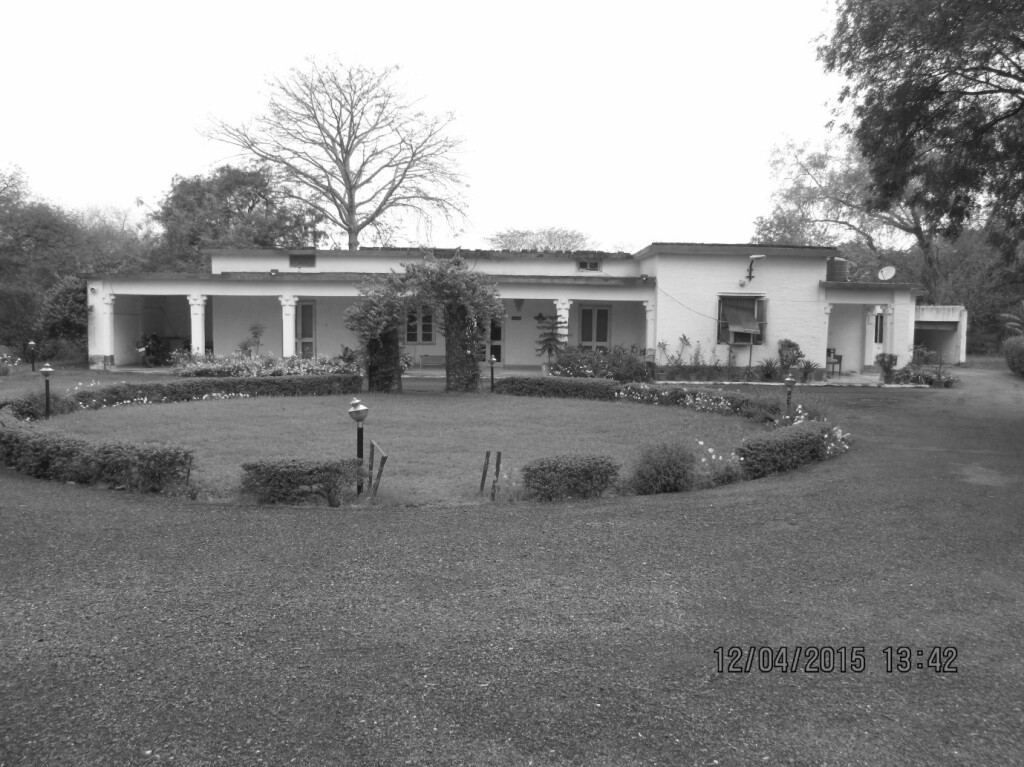
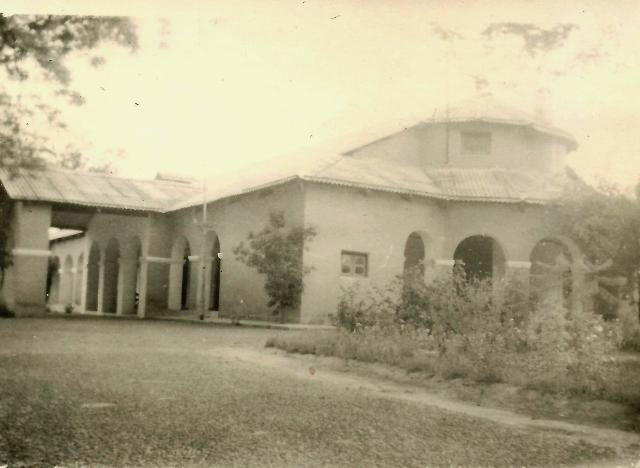
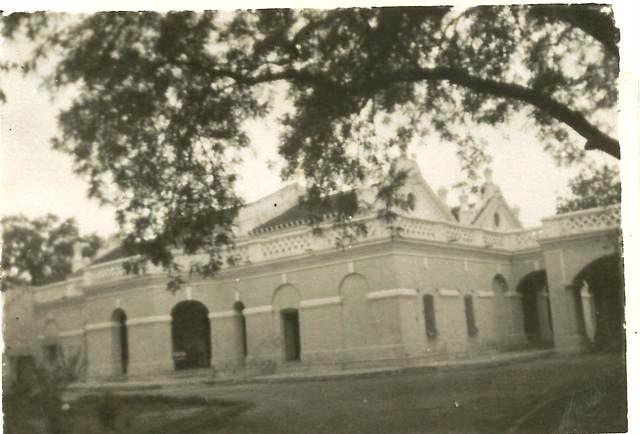
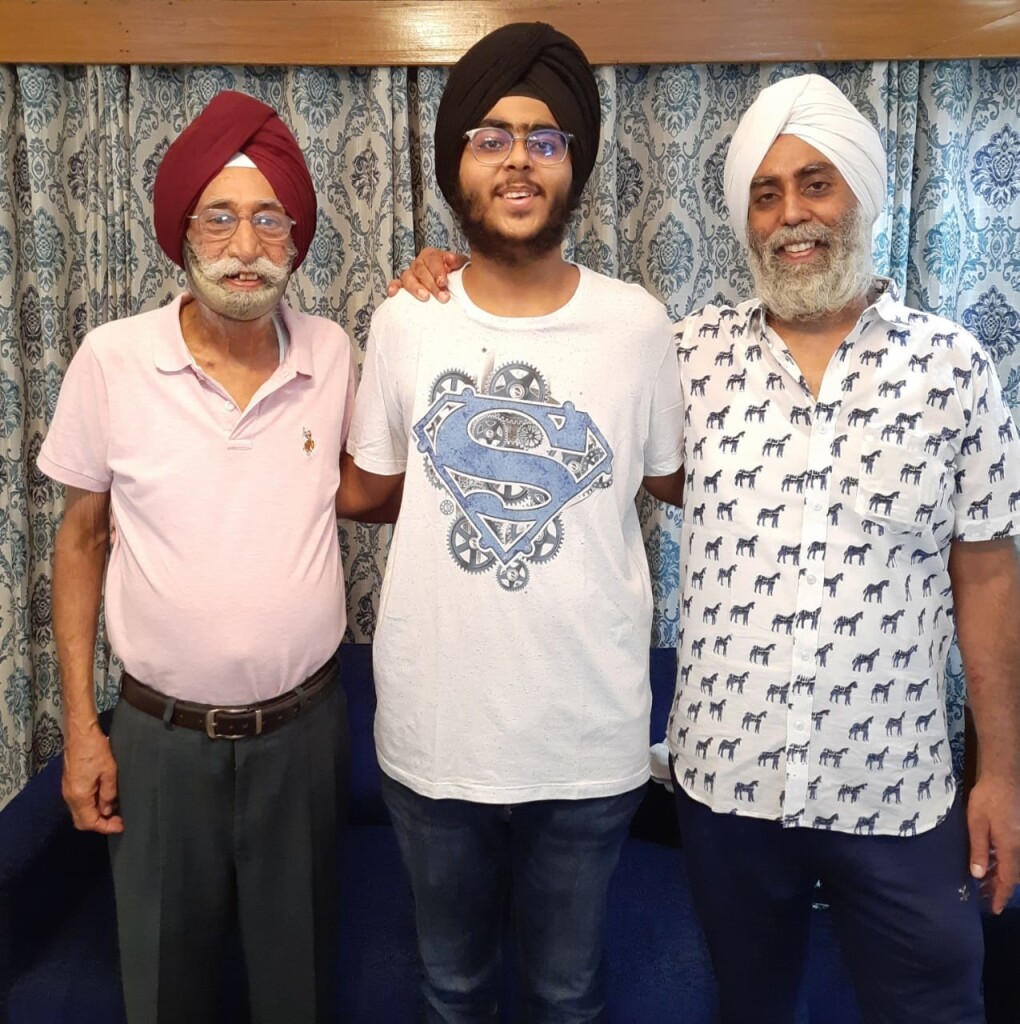

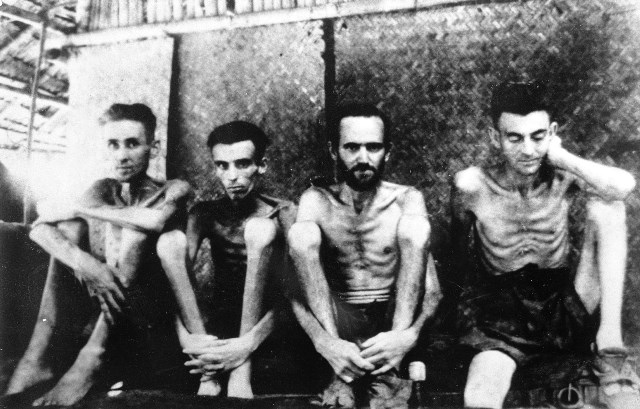





Gen Surjit,
It’s very thoughtful/kind/prudent of all of U for the proud progeny
Vidya
I was completely glued till the end and could get up only after reading the entire article. Beautifully written account. One wonders how difficult were the circumstances those days and how easy life has become now. It’s so nice to see that the war diary has been preserved. I wonder how Jhaiji moved in those days with three children, switching trains in between, with no mobile or WhatsApp, and without the facilities that we have today. It’s indeed incredible.
Thanks for sharing,Veerji.
Gurdeep,
Thanks.
Nearly eighty years have passed since the World War began. Thousands of books have been written and scores of movies have been filmed. Yet, there is something new to learn!
The event was so profound!
When I went to Singapore and saw the place where the two surrenders were signed, I was awe struck by how they have captured the spirit of the two events.
How is Mhow? Do send us some pictures of your family
Happy Diwali
Surjit & Surinder
Dear Brig Surinder and Jasraj,
What a great effort and a wonderful post detailing the account of WWII so diligently documented by Respected Major Balwant Singh ji.
I feel these historical posts are immensely important because knowledge of our heritage allows us (in particular the family) to understand where we have come from. It not only reveals the struggles and tribulations of the past, but it also helps us to appreciate the present and in turn motivates and guides towards a better future.
Warm regards,
Dhiraj
Thank you Dheeraj,
Indeed what you have written is true. In Indian society we call it VIRSA, and preservation of Virasat is of great importance. Rarely do childern and grand childern have any inclination towards it, but if they do one is blessed.
Do keep contributing to Amolak.in.
My dear Surinderji,
Sat Siri Akal
An extremely captivating account of your respected father’s life. I’m enamored with the efforts you and Jasraj made in translation and compilation.
My heartfelt thanks to you and dear Jasraj, as also to Maj Gen Surjit Singh for sharing this Amolak Heera.
Waheguruji bless.
With utmost gratitude.
Sincerely yours
Teji
Thanks for your compliments, Tej Veerji. Your patronage is valuable.
Dear Sir,
An exciting, adventurous and horrific account of the time described by your father. Indeed it was the grit and determination of your father which withstood him all through. Out of 26 lakh Indian army which was demobilized in 1946, ten lakh were Sikhs, the backbone of our land forces.
When they were demobilized in 1946, was not our Govt was ruling in Delhi?
There was self rule, Indians were being trained in the art of governance, Shri Nehru was PM, Sardar Patel the Home Minister and Shri Liaqat Ali Khan the Finance Minister.
Your father’s induction in the army, the Burma campaign and life after that have been explained in detail.
One shudders to the photographs of aerial bombing and the POWs in the skeltal form.
This is the first time I read the Burmese campaign in such detail.
All you brothers rose to dizzying heights in the armed forces inspite of your dad being away on duty.
Thanks for the . ‘WAR DIARIES OF OUR FATHER, MAJ BALWANT SINGH JI (1911-2004)’.
I have saved it in my permanent folder.
Regards,
Sitendra Kumar
Dear Sitendra,
Thanks.
Public memory is proverbially short. Not many people now recollect that for a number of years, many people believed that the Japanese would win. Pitaji tells me that our soldiers were in awe of the soldierly qualities of the ‘Japs’
Not many of are aware of the fact that no Japanese soldier surrendered during their invasion of Burma and Malaya. They preferred death to throwing up their arms!
Hara-kiri and Kamikaze are the words they used for courageous fighting.
When the war ended, Japan was in shambles. Hiroshima and Nagasaki were reduced to ashes. But within a couple of decades, they re-built their country and today they are a force to reckon with.
Indeed, they are not allowed to raise an Army. All that they have is a ‘self-defenses’ force.
Regards,
Surjit
Thank you so much for sharing this…
It was a delight to read Pitaji’s memoirs and the insight into the life of a remarkable human being !!
Thank you once again..
Take care..
Stay Healthy, Happy and safe.
Pairi Pauna !.
Anu.
Dear Gen Surjit,
I went through the entire write up. It was astonishingly simple, matter of fact, devoid of all dramatics. It was the simplicity , truth and sincerity of narration which made it WONDERFUL AND PEACEFUL reading..
Many many thanks
best regards
HAPPY DEEPAWALI
WAHE GURU, WAHE GURU
k ramani
K Ramani,
Thanks.
Wars are not depicted properly in the movies. And when soldiers write about them they tend to exaggerate their role in the battle.
The 2nd World War lasted for nearly six years. Many events occurred, and we heard a lot of stories from our father as also our instructors in the Academy. However, the diary is the most authentic account, because Pitaji had not written it for publication.
My brother Surinder felt that we should share it with our close friends.
Surjit
He was our guiding star
Harbans and Guddi
You and my name-sake, Guddi are living in accordance with his values!
Surjit
He lived a magnificent life and did a lot of service for the panth.
Tajinder Singh
Narindra Nath Bhatia
2:51 PM (1 hour ago)
to me
Sir,
Very absorbing & interesting read. I thought only Punjabi Hindus call their father s Pita Ji. My parents were from Sargodha & we called father as Pita Ji & mother s Mata Ji (short form Pitai, Matai) but Sikhs called father Bapu & mother Jhaai if I am not wrong. Of course the modern generations call parents Papa/Daddy & Mom /Mummy.
Warm regards,
Col NN Bhatia (Retd)
arvind kumar
Wed, Oct 28, 10:37 PM (12 hours ago)
to me
Delighted.
Old is Gold.
My grandfather’s antique gramophone (1935)
https://www.youtube.com/watch?v=MjejF9Iez10
G Arvind Kumar
satish kumar bhandari
7:07 PM
to me
Very interesting and informative
ASFIC
MAY GOD BE WITH YOU
SATISH
website http://www.bagbani.yolasite.co
jena pradipta
5:22 PM
Good evening Sir
A nice narration..
How are you??
we are fine.
Warm regards
Sunita and Col Pradipta Jena
Having read his diaries several times, I feel inspired by our fathers attitude to life and his fellow human beings. All his relatives and friends were in awe of him and many had benefited materially and spiritually by associating with him.
Not in height, but in stature, he was, by far the tallest man in our paternal and maternal relations. Forever helpful, he stood for for what he thought was right and that was always pro poor and needy.
He had strong will power and was blessed with sterling qualities of the heart.May God bless his soul.
Going through the diaries, I read some very touching lines on the famine in Bengal. I was reminded of something which my boss, Brig(later Maj Gen) B Bannerjee told me about that period. He once remarked, “You, non-Bengalis will never be able to understand what hunger is. When I was a teen-ager, I heard my father telling my mother to give the children lots of water to drink, so that we would eat less rice!” And he showed us some pictures of famished people. Pitaji has talked of seeing dead bodies, with no one having the means to perform the last rites.
It is a touching account.
Surjit
ABS Sidhu
to me
Hi Surjit ,
Thanks for sharing very interesting
and educative dairies written by
your respected father .
With warm regards .
ABS Sidhu
Interesting insight into the military life and times of second WW. Lucid compilation Pleasure reading it, Sir
Sir. Nostalgic and great homage to the Valiant departed soul PITAJI. Indeed very sweet of you. It reflects how Baton of good KARMA is being handed up/down the road.
thanks.
dear Surjit Uncle,
everytime i read one of your articles, i wish to read many many more. this one from war diaries of Pitaji is a gripping account of those times.
May Surinder uncle n the next generation gets to translate more of his diaries & we get more insights into your family’s rich legacy.
Pls don’t let any story’ stay untold. Already looking forward to next article.
Warm regards
Thanks for the kind words.
One of the first pieces was written after we met you in Port Blair.
Where are you now?
Regards to your wife and love for the children
Surjit & Surinder
Nostalgic!
Very interesting.
Thanks
Gagi
You are a gifted family.
Very few families have kept such good records of their life specially during the War.
Enjoyed reading threcord kept by your fsther.
Pictures support the narrative and to its value.
Dave,
It gives us great pleasure to add your name in the list of our extended family.
Please share some of your childhood experiences with us.
Surjit
Many thanks.
Very interesting.
Dushyant
Forwarded to all friends
Gangadharan
Thank you Sir.
Yours is a fine family with an inheritance to be proud of.
Where is the 27 Acre farm?
Regards
Madan
Madan. You are a part of our family!
The land was allotted to us in Village Bahadurpur; about 11 km from Yamunanagar, where Pitaji built a house. Since our farm was two km away from the village, we built a small two-roomed house (no drawing-dining) on the farm itself. Pitaji and Jhaiji lived there, during the sowing and harvesting seasons. We also grew vegetables and some fruits for personal use. When Pitaji crossed eighty, the family decided to sell the land, in three instalments. None of the brothers was keen to live in YN. However, we do remember those days with nostalgia. My maternal uncles are still there, so we get an opportunity to go down memory lane!
Surjit
Vivek Bopiah
10:37 AM (1 hour ago)
to me
Dear Sir,
It was lovely reading your esteemed father’s war diary. He had a very varied and colourful life. Hats off to him.
You followed his footsteps and achieved great heights.
My grandmother had sent 5 sons to the World War, one of whom fought in Kohima. Luckily all survived.
She was awarded a pension for life and a war jagir. My ancestor was the Chief of the Coorg Army that fought against Tipoo who could never capture Coorg. His grandson was a Diwan who was my great grand father who sported an 18 inch moustache.
We had two Coorg Bns that fought both World Wars. One was converted to 37 Med Regt and the other 44 Hy Mor Regt. In our Kodava (Coorg) community it was a tradition to send one to the Army. It has slowly died down. Our worldwide population is 1,55,000 – a very small community. We are proud that we produced two Chiefs, Cariappa and Thimayya. Yuou will be surprised to know that we still have the highest representation to the size of population in the Army.
Like the Sikhs who are allowed to posses swords with out license we are allowed to posses one rifle and a gun with out license. That is why I say there is no difference between a Boparai and Bopaiah – only 3000 Kms separate them – both proud martial races.
Warm regards
Dear Bopiah
Indeed!
The Kodavas are a proud race, and their pride is justified. When I visited Mercara, I was very happy to see the statues of the two chiefs. Air Marshal Nanda Cariappa was kind enough to call me over to Roshanara.
I have some very good friends from you land. Brig AC Pemmiah was my colleague. His wife (I think her name is Sulu) came to look us up. My mother mistook her to be Punjabi. And seh was surprised when she discovered that she was from the South.
I also learnt from Gen Nanda, the it is incorrect to call a Kdava by the word ‘Coorgi”
For a long time I used to receive your community journal, “The Coffee Land”
Surjit
Ashali Varma
9:25 AM
to me
Really enjoyed reading Maj Balwant Singh ji diaries. He achieved so much. Thank you for sharing.
Ashi
surinder mehta
9:07 AM
Dear Sir,
It is a very interesting narration. Though I have to open the link yet and read it. It is very heartening to know that such a rich legacy of your family history and works of your grandfather and Pita ji are being handed down to younger generations in this manner and would perhaps be an eternal joy and inspiration for them for times to come.
They must be so proud and would be blessing you all from the heavens.
Regards,
Gen Mehta
Hullo Surinder,
Good to hear from you!
Where are you settled?
And we would be very happy if you write something and share it with our readers.
Where are the two young ladies?
Surjit
sundara rao
8:57 AM
It was interesting to read yr msg & story of yr Pithaji.
C Sundara Rao
Dear General,
Thanks.
Ever so often, I begin to think that I have grown old.
And then I think of you. I feel young again!
Surjit
Harikumar Krishnannair
7:36 AM (4 hours ago)
to me
Thank you for sharing Sir.
Will go through.
Happy Dusshera to you and family
Warm regards
Hari and Malathi
paramjit singh
Sun, Oct 25, 8:01 PM (15 hours ago)
to me
Dear Sir,
It was delightful to read the translated excerpts from your father’s war diary. To leave a good job to join the Army was indeed a very courageous decision.
My grand father was a doctor, also based in Maymyo Burma. They shifted to Sialkot in 1942.
Thank you very much
Warm regards
Chinnappa Kuppanda
Sun, Oct 25, 6:09 PM
Sir
Interesting reading. I wish my father had done the same.
Four wars and most Interesting posting would have made great reading.
Maybe I should browse through his papers
Thanks for the memories.
Cheers
Chinnappa
Harbhajan Singh
Sun, Oct 25, 6:04 PM (17 hours ago)
to me
Dear Surjit Ji,
Thank you very much for sharing personal diary of your respected Pita Ji. What all trial and tribulations the Family had to go through and the war time, service conditions.
Warm regards.
HS
WAZIR 90 KUMAR
Oct 25, 2020, 5:33 PM (18 hours ago)
to me
Thanks. Wish you a happy dussehra
Bedi
Pune
JK Bajaj
Oct 25, 2020,
to me
https://m.youtube.com/watch?v=p9YkDeTij90
JK Bajaj
With warm regards and thanks
IP Singh
PremParkash Batra
Oct 25, 2020, 3:46 PM
to Rana, Dhruv, generalsandhu, Ghanshyam, Gagandeep, Maj, vinodkhanna, RabjitBRai, cudayb
Wg Commander Rana Chhina
Maj Gen Dhruv Katoch
Maj Gen Gagandeep Surjit Singh
Maj Gen Vinod K Khanna
Maj PIJS Sandhu
Lt Gen Ghanshysm Katoch
Maj Gen Surjit Singh
Dear Wg Commander Rana Chhina, Sir,
1. I am forwarding WAR DIARY of Major Balwant Singh, F/O Maj Gen Surjit Singh, which may of interest for inclusion War History of World Wars in Records.
2. The only Memory of 1st World War was a JAGIR of Hon Muslim Captain who had a JAGIR of a 3/4 Acres of BIG SAEW BERS between Police Thanna of LILLE/PINDDARDAR KHAN/JEHLUM, the Official Residence of Incharge my late Father, Sub Inspector, Shri Manohar Lal Batra, in 1944.
I was then in Class 5/10 years Old. I would jump and climb 10 Feet Perimeter Wall and pluck some Bers to eat after being safely back. I think once, he saw me. Next day, the Captain sent a few SEERS of BERS to my Father in the Police Station. When my Father returned home in the evening. he just asked me simply, if I was stealing BERS from the ORCHARD.
My Father never forgot this. Post retirement, 26 years later, my Father had planted a BERS Tree in our 200 Sq Yard Plot in R Block, New Rajinder Nagar, New Delhi, 11060. I was then Lieutenant and later married with 2 young Children. I would climb that Tree and pluck BERS and give it to my Children. My Father may had been watching. In 1980, after the death of my Father, my Mother had the Tree Cut. The Trunk was lying around, very strong wood.
3. I am sure General Surjit Singh may be having similar memories of his late Father, Major Balwant Singh.
4. It seems to have some items for your Historical Record.
With best regards,
Commander Prem P Batra Retired
Dear Cdr Batra,
That seems to be a lovely little story! We invite you to contribute to our blog.
Surjit
Dr.Harmeet Khurana
Sun, Oct 25, 10:46 PM
to me
What beautiful memories.
Thank you for sharing Uncle. I really appreciate the effort both you and Surinder Uncle have put in this piece. God bless young Jasraj.
Love and regards
Jyoti
Jyoti,
Thanks.
It is my firm belief that Angad and Tripti have a writer in them.
Love and regards,
Surjit Uncle
Sir,
Thanks for sharing
Ranjit
Ranjit,
Good to hear from you
.Where is Rita ?And how have her sons shaped in life. We would like to get in touch with them.
Surjit
An excellent recall of past events, beautifully documented and presented.
An excellent recall of events beautifully documented.
Very well written. Appreciate the credits and happy to help.
Nostalgic.
Spent many days with your parents in IMA, Premnagar, Dehra Dun during the second tenure.
And Surjit sir, you were the motivation for me joining EME. Never a regret!
Great! Now I know who gets the credit for inducting a future DGEME into the Corps….and it was your father who got me into it
Surinder
Fascinating story. Thanks to Surinder and Jasraj for translating it.
My father served in the same theatre and I’ll forward his memories.